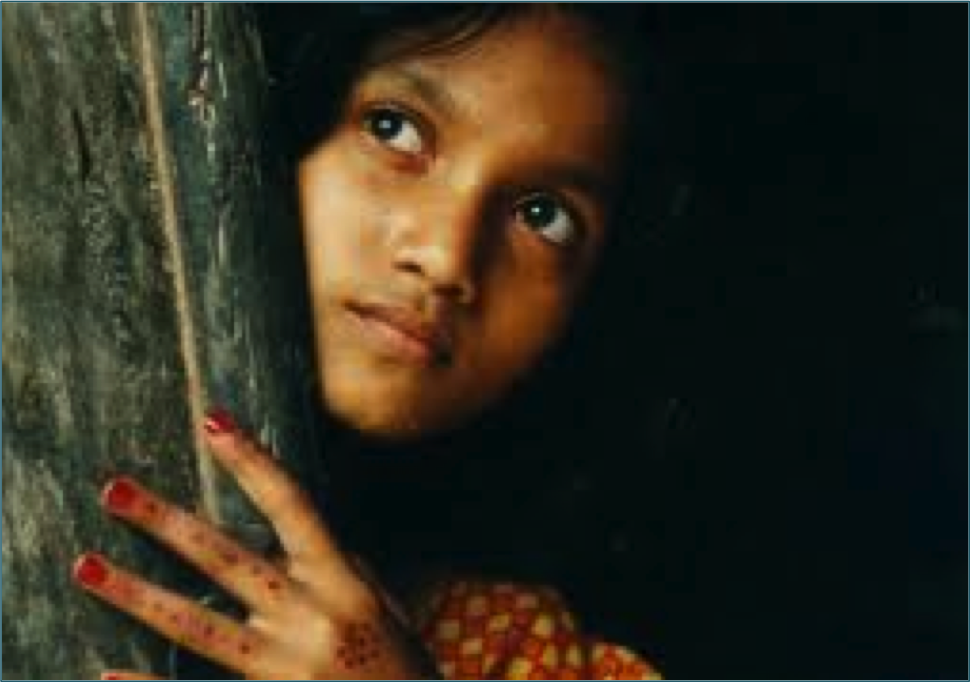
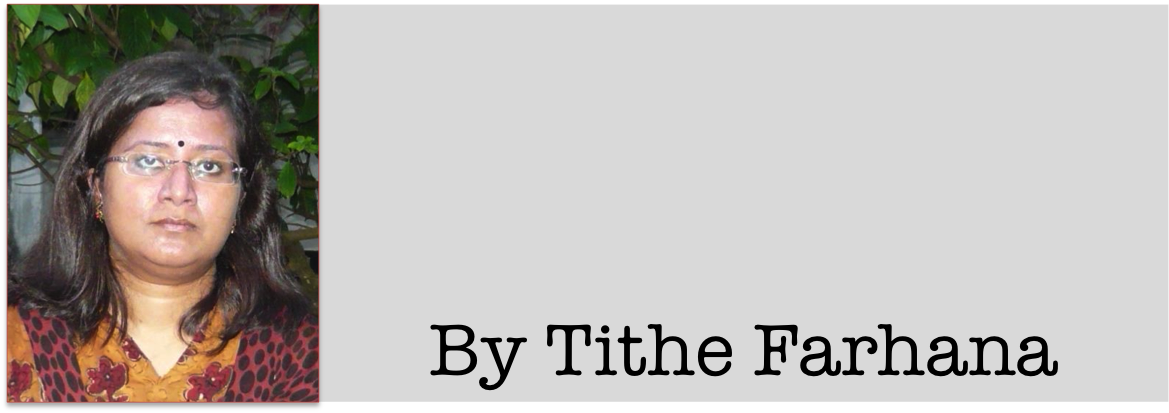
Despite efforts from various parts of society, child marriages in Bangladesh are still a sad reality.
A good proportion of girls across Bangladesh go into the bed of wedlock before reaching the age of 18, despite the practice being prohibited about eight decades ago. This is mainly due to loose intervention by the authorities to stop child marriage.
The legal age for marriage is 21 for boys and 18 for girls, established by the National Child Marriage Restraint Act in 1929 in Bangladesh. Moreover, Bangladesh acceded to the Convention on the Elimination of All Forms of Discrimination against Women (CEDAW) in 1984, which prohibits child marriage, stipulating 18 as the minimum age in its General Recommendation 21 in 1979.

Bangladesh also signed the UN Convention on Consent to Marriage, Minimum Age for Marriage and Registration of Marriages in 1998. This Convention requires signatory states to obtain consent from both parties entering into a marriage and to establish a legal minimum age for marriage.
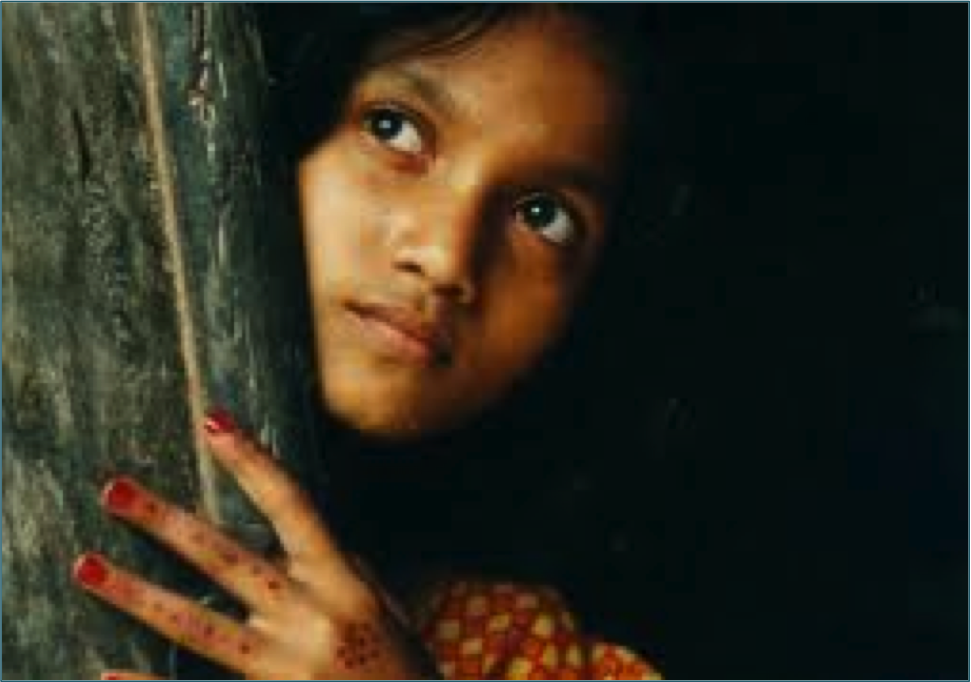
- Despite it being illegal, girls continue to be married off very young in Bangladesh (Photo Credit: UCSD)
The national Child Marriage Restraint Act of 1929, which was revised in 1984, holds a provision of punishment for whoever performs, conducts or directs child marriage—perpetrators can face imprisonment of up to a month with a fine of 1,000 taka (around $US12.20).
Despite the legislation and being signatory to these conventions, parents continue to marry off their under-aged daughters secretly. According to the latest 2007 Bangladesh Demographic and Health Survey (BDHS), 66 per cent of women aged 20 to 24 were married before the age of 18 and the average age for marriage of girls is 16.4 years against 16.0 of the previous BDHS report (2004). In addition, the State of the World’s Children 2011 report of UNICEF revealed that one-third of women aged between 20-24 are found married off by the age of 15.
Eighteen-year-old Ruma, for example, lives with her twenty nine-year-old husband Jony, who works as a pick-up van driver, in a tin-shed hut in the Mirpur slums of Dhaka. They got married four years ago and have a two and a half year-old daughter.
“When I was in love, I thought family life will be enjoyable. But now, I think it was a bad decision,” said Ruma who once went to school regularly.
“What do I do now after marriage? Taking care of my son, washing dishes, cleaning the floor, washing clothes and cooking,” she regretted.
Ruma’s mother Rokheya Banu said she gave consent to her daughter’s marriage as it became difficult to bear her expense.
“I feared I would have to pay a huge dowry if she is married off at a later age,” she said.
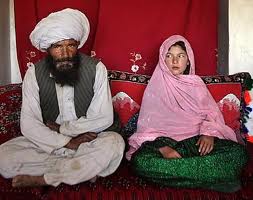
- Often the husband is many years older and is a business friend of the family (Photo Credit: Bulletin of the Oppression of Women)
Rokeya, who is a widow, was also married off at the age of 14. She is now 35 years old.
Traditional customs, patriarchal familial structure, people’s mindset, poverty, illiteracy, culture of dowry and security concerns are the root causes for child marriage in Bangladesh, think activists.
In a male dominated society like Bangladesh, a girl always has to remain alert against social stigma. A girl has to bear the stigma, even though miscreants harass her. To escape such troubles, parents become eager to marry off their daughters as soon as they reach adolescence.
Khuritay Buri is a Bangladeshi proverb meaning “Bangali girls become old when they become twenty.” The proverb clearly reflects social compulsion and the mindset of people to marry girls off at early age.
See also:
- Amahdiyya People Still a Target for Islamist Inquisitors in Bangladesh
- Fighting for Equality: The Hijra in Bangladesh & Beyond
People think that girls should be married off at their early age for their familial happiness and to learn household chores and responsibilities. A father thinks that it is the ultimate duty of his life to marry off his daughter. That is why he wants to discharge his duty within the shortest possible time.
A father, who most of the time is the sole decision maker in a family, often arranges marriage for the teenage girl without consulting his daughter, even his wife. The head of the family thinks he always does the right things and intends to run the family in an autocratic manner. Mr. Amjad Hussain, father of four daughters and a rickshaw puller in Dhaka city, commented:
“As a poor man I am unable to continue to arrange the basic primary education to my daughters, for this I needed to marry my daughters.”
His three daughters have already got married before the age of 15.
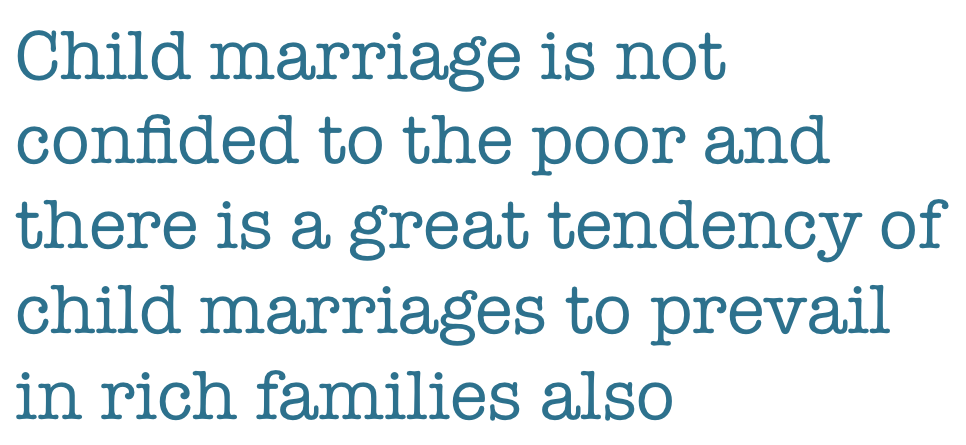 Due to patriarchal family culture, a teenager has little opportunity to raise voice against any decisions taken by guardians.
Due to patriarchal family culture, a teenager has little opportunity to raise voice against any decisions taken by guardians.
On top of this, poverty is a major factor that triggers early marriage of girls who are often considered as an economic and social burden by their families.
Marriage of a young girl to an older man and into another family is often a family survival strategy in order to obtain financial security, Amjad Hussain said, father of 4 daughters .
Additionally, parents are attracted by the prospect of lower dowry payments if they marry their daughters off at an early age. The demand of dowry will increase in parallel with age. So, young girls must be married off as early as possible to escape the burden of huge amount of dowry. Due to pressure of dowry, poor families think that birth of a male child is a heavenly gift, while the birth of a girl child is still treated as a curse.
This is not confided to the poor and there is a great tendency of child marriages to prevail in rich families also. In many cases, wealthier parents marry off their young daughters with old business tycoons to expand their businesses.
Being deprived from the light of education, the girl children are mostly confined within the four walls of the house and grow up like lifeless dolls instead of empowered human beings. They have neither the courage nor the ability to protest any decision imposed on them ‘irrationally’ by the family.



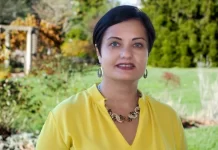
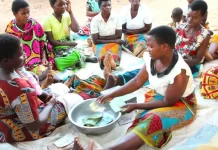




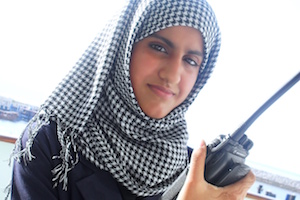

how to save the girl from Bangladesh to get married before the age of 18?
this is heartbreaking. what can we do to help?